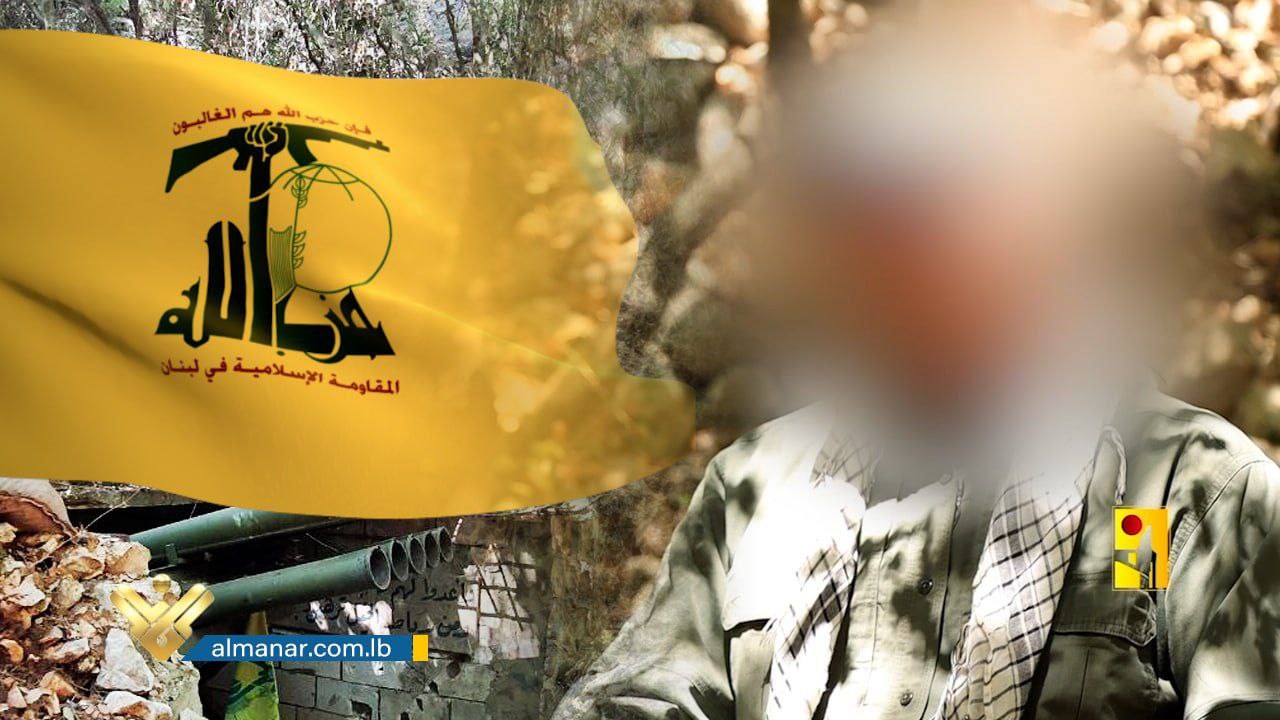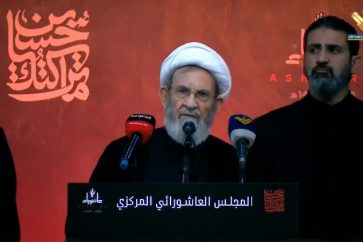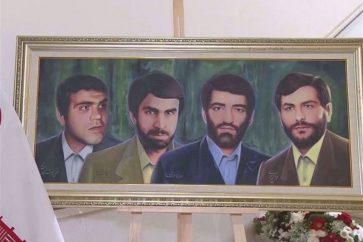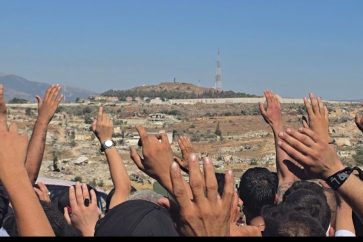Diaa Abou Taam
Not too distant from the northern region of occupied Palestine, amidst a picturesque landscape adorned with lush green trees, a member of the Mujahideen from the Central Military Media unit directed us to park our vehicle. We were requested to leave behind all our electronic devices and mobile phones within the car.
Journeying from one strategic point to another along the southern expanse of the Litani River, we were accompanied by the military media team.
Our expedition led us to a concealed “studio” nestled deep within a forest whose precise location remained undisclosed, though we were acutely aware of its proximity to the Israeli separation barrier dividing Lebanon from its northern territories.
Every facet had been meticulously arranged: cameras poised, two chairs positioned facing each other, and a banner unfurled bearing words that had been selected with utmost care:
“We are in an open war against the enemy until full liberation.”
Curiosity compelled me to inquire to our military media escort, “When you mention ‘ultimate liberation,’ are you referring to Lebanon or Palestine?” A faint smile graced his countenance as he replied, “Let’s leave the realm of speculation to the Israelis.” With this response, our efforts to maintain an air of secrecy began in earnest, aimed at precluding any possibility of the enemy discerning even the minutest facets related to the impending interview.
Elements such as the interview location, the timing, and the interviewee’s identity were all meticulously concealed. For instance, even the time displayed on the watch on my wrist – an aspect that might inadvertently be captured by the camera during the interview – underwent adjustments, exemplifying the level of preciseness that characterized our approach to the task at hand. The subtlety of these measures is only matched by the imagination to envisage the breadth of precautions taken.
It didn’t take long for our interviewee to arrive.
Referred to as “Hajj Reda” by the military media unit, he seemed apparently to be from the founding age of the resistance, and also, it was obvious that he possessed an intimate familiarity with even the smallest details of our rendezvous point, and even had a commanding authority over it.
Points of Strength and Weakness
With a smile on his face, a smile which resembles that of Hezbollah’s eighties generation, caring “Hajj Reda” asked me about family, work and “brothers” at Al-Manar. Whoever attended the interview would suggest that it was not the first meeting with ‘Hajj Reda’, and that we had several past meetings.
Starting the interview, I asked “Hajj Reda”: What is the difference between the resistance’s power in 2006 and that in 2023?
After putting forward the resistance’s analysis of the 2006 Divine Victory’s ramifications, “Hajj Reda” used a significant statement to describe the difference between the resistance’s power in 2006 and 2023: It’s just like the difference between its power in 1982 and 2000.
“Hajj Reda” then offered the resistance’s interpretation of the Israeli enemy’s current power level compared to that in 2006. Such interpretation helps in understanding the power of the resistance.
Here we are to talk about the strength factors which distinguish the Islamic resistance’s capabilities during any future war with the Israeli enemy. According to “Hajj Reda”, one of the main factors is the incubating environment which supports the resistance’s choices regardless of the price it would pay.
Game-Changing Surprises
Based on such reading, what are the surprises that await the enemy’s military and its battalions in any future war? Hajj Reda’s answer was shocking.
That answer prompted us to dare to ask the Hezbollah officer another question: “What are the surprises of the next war?”
Galilee Formula
The Galilee formula is also referred to by the Israelis as the “Galilee nightmare”. Why this formula – declared by Hezbollah Secretary General Sayyed Hasan Nasrallah in 2011 – is being highly debated by the Zionists? “Hajj Reda” unveiled some of the changes such formula has led to, with the most dangerous change being related to the Israeli fighting ideology.
Kfar Kila Camera Incident
Despite the fact that the Israeli enemy re-installed surveillance cameras at the border in mid-July, ‘Hajj Reda’ considered the incident in which Lebanese young men removed the cameras earlier as ‘disastrous’.
In-short message to the journalists: Get ready for media coverage beyond the border!
“At Your Service”
The interview on the seventeenth anniversary of the Divine Victory couldn’t be concluded without delivering a message to the resistance leader, Sayyed Nasrallah. Echoing that sent by the Mujahideen in 2006 July War, “Hajj Reda” affirmed Hezbollah fighters’ full readiness, voicing their passion to engage in a new confrontation that will teach the enemy a harsh lesson.
Source: Al-Manar Website




